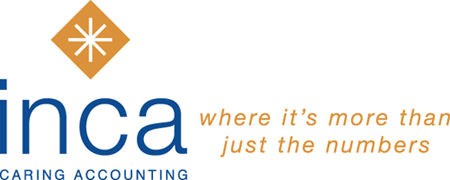Do you earn rental income from a property (other than a holiday let) that you jointly own with your spouse or civil partner?
Although this isn’t an uncommon situation and not especially complex from a tax perspective, in our experience, it’s an area that can catch people out and lead to problems if full disclosure isn’t made or procedures aren’t followed correctly.
If you’re in this position, there are two things you must do to make sure you stay compliant and on the right side of HMRC:
1. Declare your rental income
Every taxpayer gets a tax-free property allowance of up to £1k. If you own a property jointly with a partner, each of you is eligible for the allowance against your share of the gross rental income.
You may believe you don’t have to declare your income because your earnings are within your allowance, but if your income from property rental is more than £1k, you must let HMRC know.
If your rental income is between £1k and £2.5k, you just have to advise HMRC, but if it’s between £2.5k and £10k after allowable expenses – or more than £10k before allowable expenses, you’re required to report it on a Self Assessment tax return.
In recent months, we’ve been contacted by several individuals who’ve received letters from HMRC asking them to clarify their position regarding rental income. It seems that HMRC is increasingly making use of information shared by financial institutions such as banks and mortgage brokers to track undeclared rental income.
As we always advise in matters like this, it’s far better to report your position to HMRC rather than wait for them to contact you first. You may have to pay a penalty, but at least it’s likely to be lower than if you leave it until HMRC find out about it for themselves.
If you’ve not been declaring all you should, you need to make a voluntary disclosure. The Let Property Campaign allows you to advise HMRC of any unpaid tax from previous years, bring your affairs up to date and get the best possible terms to pay back any tax you may owe.

2. Tell HMRC if you want to change your rental income ratio from 50/50
If the legal title of a rental property is in joint names, HMRC will generally treat any rental income as belonging equally to each partner and tax them accordingly.
However, to help them optimise their joint tax efficiency, some couples may want to redistribute rental income so that one receives a greater share than the other.
For example, one partner might be a higher rate taxpayer earning £70k a year, while the other is a lower rate taxpayer earning £20k. Splitting rental income 50/50 will mean the higher earner having to pay 40% tax on their share. But the lower earner has the capacity to earn a further £30k in income before they move into the higher tax band. In a case like this, it makes good sense to redistribute rental income so that as much of it as possible is taxed at a lower rate.
If you want to make an adjustment to the 50/50 default position for tax purposes, you will have to advise HMRC by completing Income Tax form 17 and providing them with evidence that your interests in the property are not equal – usually in the form of a declaration of trust.
The responsibilities that go with receiving rental income from a jointly owned property must be taken seriously. It’s becoming easier for HMRC to access and cross-reference financial activities and tax records. Consequently, anyone not declaring income or failing to follow proper procedure in relation to an unequal equity split is leaving themselves exposed to the prospect of fines and tax payments that may be backdated many years.
Let Inca Ensure You Are Tax-Efficient & Compliant!
Inca works with many couples who jointly own and let out property.
We can advise you on how best to structure income between you and your partner so you optimise your tax efficiency as a couple. We can ensure you follow the correct procedure in advising HMRC of the ratio split and keep them updated if things change. We can help you to report any rental income you earn correctly – and if for any reason you’ve not been reporting income properly up to now, we can support you in your discussions with HMRC.
Get in touch with us for an initial, no-obligation discussion about your situation, Call us now on 01235 868888 or contact us by email at [email protected]




